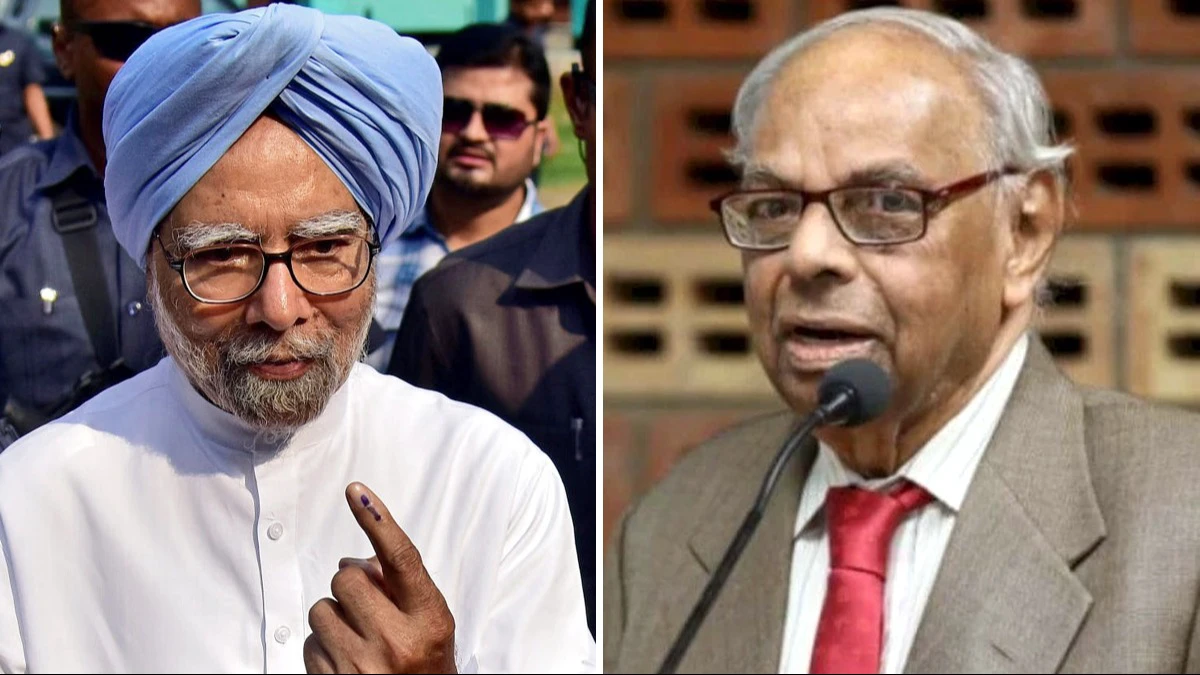
Former RBI Governor C Rangarajan, who was the chairman of Prime Minister’s Economic Advisory Council in the Manmohan Singh government, has said Singh’s first term as the PM was excellent but the second was clouded with political problems.
“The first term of Manmohan Singh as prime minister showed that he can handle all of this [issues beyond economy] and really led to a situation in which the country grew at a very fast rate. The second term as prime minister was slightly different because that was a period set with too many political problems. But as finance minister, he did an excellent job. As prime minister, he did an excellent job in the first term. The second term was somewhat clouded by other factors,” Rangarajan said in the podcast The Neon Show.
Rangarajan also recounted Singh’s stint as Finance Minister in the early 1990s under the then PM Narasimha Rao when he liberalised the Indian economy. Rangarajan was the governor of the Reserve Bank of India between 22 December 1992 and 21 December 1997. Rangarajan said Manmohan Singh was appointed the FM because of his skills as an economist.
“It was a recognition of his capabilities as a practicing economist that brought him in to the position of the Finance Minister. He delivered a very competent regime. All these reforms [liberalisation] could be introduced. We were part of the team, but he led the team. And, Narasimha Rao played the role of providing the political support to the new economic regime,” Rangarajan said.
“Narasimha Rao’s role is also very important, and many people do not realise Narasimha Rao at that time as prime minister was also minister in charge of industries. Therefore, the whole system of controls, licenses and all, were knocked down by his ministry,” he added.
Rangarajan also touched on his decision to resign as the chairman of Economic Advisory Council after the Congress lost 2014 general elections.
“By the time [2014], I had become chairman of the economic advisory council, and I was deeply involved with the policy making. Therefore, once there was a system change, I didn’t think it was right on my part to continue. I don’t think it’s appropriate. So, I left and I think that is the right thing to do,” he said.
Rangarajan emphasised India should focus on increasing the per capita income in the years ahead to become a developed country. “People talk a great deal about the fact that India is the fifth largest economy and it will move to be the third largest economy in the next few years. That is true, I think we can be proud of that, but at the same time we also have to remember that in terms of per capita income India is almost 142 out of 197 countries. That shows the distance we have to travel.”
“We talk about India becoming a developed country. What is a developed country? The definition that we normally use for a developed country is a country which has a per capita income of at least $13,000. India’s per capita income today is about $2,700, so we have to really increase the per capita income by five times in order to become a developed country,” he said.
Citing the emergence of artificial intelligence, Rangarajan also flagged that the Indian workforce needs to adapt to changing technology.
“These technological changes are somewhat different in character from the technological changes that happened earlier. The AI and generative AI are essentially substituting not just the manual labour but also intellectual labour. That creates a situation in which the demand for human labour itself could go down. To put it in the language of the economist, the employment elasticity of income may come down – that is for a given increase in income you may need less people than before. That creates a conflict between employment growth and output growth. Previously, when there was output growth there was automatically an employment growth but that may be affected to some extent in the coming years,” he said.
Rangarajan was also a member of the Rajya Sabha between August 2008 – August 2009 apart from his two stints as the Chairman of Prime Minister’s Economic Advisory Council between 2005-08 and 2009-14.

